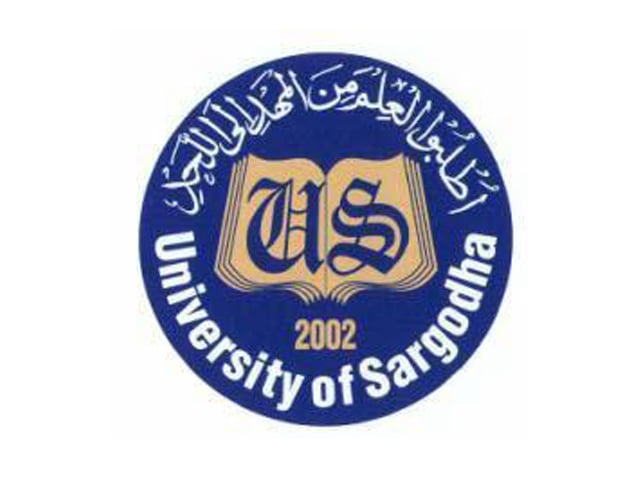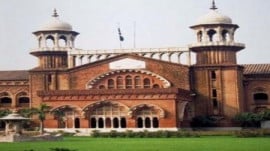
To say that Sargodha University has simply surpassed expectations would be an understatement.
Since its inception in 2006, it has steadfastly pushed all limits, vaulted over all hurdles, in pursuit of advancement. Today, it is no longer just an educational campus. It is a hospital, an industrial bottled water provider, and, perhaps most importantly, a hub of innovation – the first financially autonomous public-sector university where students believe in a ‘knowledge-based economy’.
In fact, some even go so far as to say that Sargodha University has specialised in the production of miracles.
One such ‘miracle’ is Khush Aab – the bottled water, much cheaper than the brands available in the market, treated at the university’s reverse osmosis water plant. It created quite a stir, so much so that a leading mineral water company felt compelled to throw forth its might in an attempt to stop distribution amongst the locals. Fortunately, the experts finally stepped in and gave Sargodha’s plant a clean chit, declaring it as meeting industry standards.
And, luckily, this isn’t the first – or last – of the institution’s remarkable feats.
A scientist at the university discovered a new version of the paracetamol tablet that is not injurious to the liver, while another researcher, Dr Shazia, revealed that gelatin, previously only produced from bones, can also be produced from the ispaghula husk.
Furthermore, another young scientist, Dr Amir Ali, introduced a variety of sugarcane that will endure against diseases that afflict plants, virtually doubling production. Dr Ali also discovered a sugar alternative from the stevia plant that is 300% sweeter than sugar, has zero calories, and also has no side effects.
Impressively still, Maryam Khan, a student of pharmacy, determined that 80% of all cardiac problems are due to old cooking oil. Consequently, she developed a herbal formulation which has successfully enhanced the shelf-life of oils to one calendar year, without any loss in nutritional attributes. A paper she wrote on the subject was published in an international journal, garnering wide acclaim.
Extraordinarily, all these projects are supported by students’ work.
“If such students were in America, they would have been showered in gold,” says Sargodha University Vice Chancellor Professor Dr Mohammad Akram Chaudhry. “We train our students so that they may be able to convert their knowledge into business. We believe in producing employers, not employees.”
In the same vein, the University Medical and Diagnostic Centre and Model Pharmacy, now fully functional, treats inhabitants from the region for nominal fees. Barring just four, all tests conducted at Shaukat Khanum and Aga Khan are also being conducted at the university’s laboratory. Additionally, besides pharmacy counseling, standard medicines are readily available for cheaper rates.
Dr Chaudhry says the achievements of the students must be acknowledged. He says he brought these projects – especially Maryam Khan’s – to Punjab Chief Minister Shahbaz Sharif’s attention, but has not received a response. There have been no accolades, no recognition.
And yet, the students and staff stand undeterred.
Fully aware of the significant contribution to science, Sargodha University will apply for international rankings next year. It already boasts 210 PhDs, with the number climbing by the year, and it proudly stands at number seven in the Higher Education Commission’s ranking list.
With all this talent, and all this determination, it seems that the best is yet to come.
Published in The Express Tribune, March 24th, 2013.
COMMENTS (11)
Comments are moderated and generally will be posted if they are on-topic and not abusive.
For more information, please see our Comments FAQ

1731479848-0/Elon-Musk-and-Vivek-Ramaswamy-and-Donald-Trump-(1)1731479848-0-165x106.webp)















Great Work FALCONS, we are proud of you! A request to the VC, sir more established coordination shall be established among universities, exchanging their students and teachers to share & learn from their experiences.
Sadly, we have a tendency to praise every LUMS innovation (which is not bad at all) but when it comes to universities based outside Lahore, we tend to neglect them and do not appreciate their contribution towards our society. GREAT WORK University of Sargodha. You deserve every accolade.
Oh dear! I just checked the ranking of Pakistani Universities among the world's university. The country's best University (Lahore University) ranks 1692 in the World ranking. Even African Universities are above it. Here is the link: http://urdututorials.com/index.php?option=com_content&view=article&id=1136&Itemid=120 Education in Pakistan will thrive when it removes all madrassas and allow science to be independent of religion. When that time comes (if it comes) Pakistan Universities will be on par with Indian Universities. In the meantime dream on.
When it is too good to be true, it usually is. Caveat emptor!
The real standard is published research paper available in PUBMED section of NCBI website, otherwise its just words. do these scientist have their research published and available in NCBI
University research is just one aspect of the 'innovation chain'. They are not the panacea for future wealth creation. Far from it according to the history of S&T where around 75% of the fundamental thinking that created the modern world in a technological context did not emanate from universities or advanced centres of corporate R&D, but from the minds of outsiders who were independent innovators and inventors. Baird with the TV, Whittle with the jet engine, Kilby with the 'chip' and Berners-Lee with the WWW for just a small number were all independent innovators where at the fundamental level no university or corporate R&D centre had any input. In this respect it is the fundamental level thinking that counts and what kicks off a new global industry, not the work that comes after. Considering this fact from history Sargodha University, if it really is a trail blazer, should set up a centre solely for the purpose of allowing independent engineers, innovators and inventors to have their fundamental thinking 'sifted'. In this respect as 75% of all new breakthroughs come from these people, it is a prerequisite for the future and where the horse would then be before the cart unlike today where all universities and corporate R&D centres around the world have not. Indeed this is common sense really but where the destroyer of technological breakthroughs, innovation 'elitism' and the ‘we know best’ thinking that encapsulates all centres of research around the world, does not allow these amateur thinkers to enter into their systems. The very reason why innovation stagnates and never reaches in the numbers required, the new life-changing technological products tat we need. It is again the fundamental independent thinker that is the missing link in the innovation chain and what no university presently has so that the innovation system is complete. If Sargodha University undertook this they would then really be a world leading institution but not before I have to say. Indeed the first university to do this would soon become the pathfinder for all others to follow. All it takes is for these institutions to ‘think out of the box’ for a change and where history dictates anyway. For those who say this is no longer relevant, the Royal Society and many eminent world-leading scientific institutions have said this in every recent century but where they have been proved totally wrong and where independent minds have advanced the human experience like no others.
Dr David Hill World Innovation Foundation .
This is highly impressive!
soon it will be competing Harvard, Oxford what to talk of LUMS, IBA
sounds just too good to be true :)
A link to Maryam Khan's work or the paper she published would have been very useful.
Very Impressive. It should be highlighted more on television to let everyone know that we have the potential to compete globally.